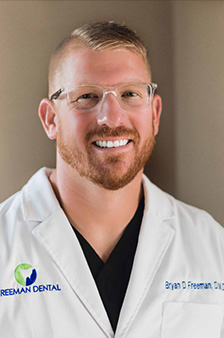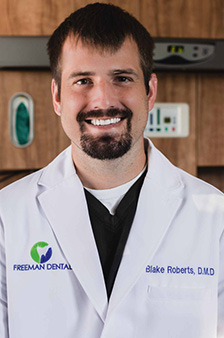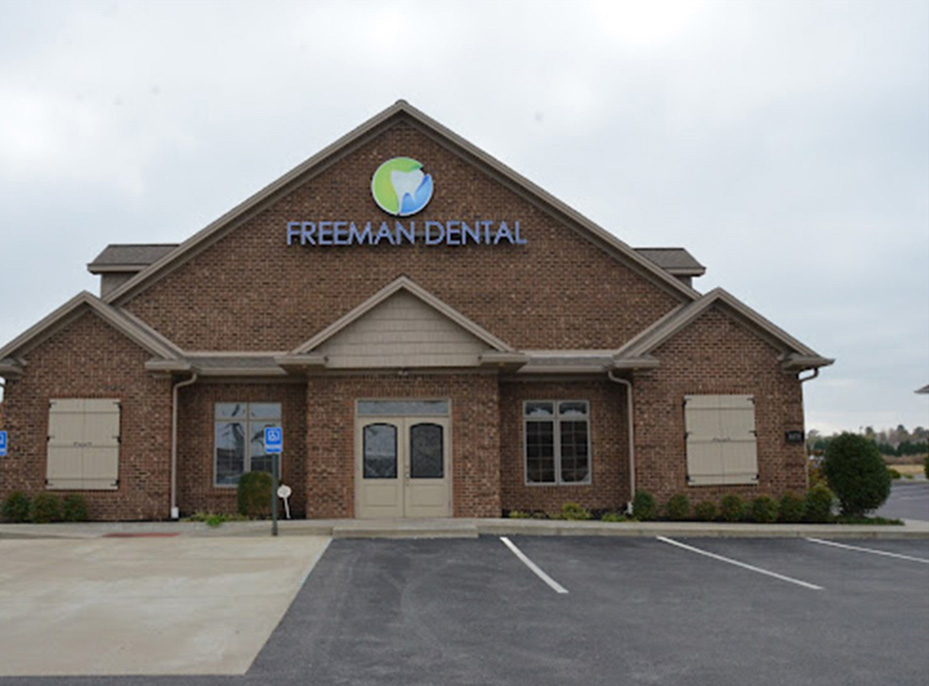About Freeman Dental, PLLC
We know that a great smile is key to looking and feeling good. For this reason, Dr. Bryan D. Freeman, Dr. Samantha J. Spraggs, Dr. Thomas B. Roberts, Dr. William C. Hackett and the entire team at our Mayfield, Kentucky dental practice is committed to providing you, our patient, with the highest quality family and cosmetic dentistry services. Using today's most advanced technology, Dr. Bryan D. Freeman, Dr. Samantha J. Spraggs, Dr. Thomas B. Roberts, and Dr. William C. Hackett can deliver outstanding results that change how you look and feel. From routine checkups to more advanced procedures like implants and smile makeovers, our Kentucky dental practice offers a comprehensive range of procedures to uniquely fit your specific needs. In addition, our friendly staff is always committed to ensuring your visit to the dentist is comfortable as well as affordable. If you are searching for a Mayfield family dentist or a Mayfield cosmetic dentist – look no further, contact us today at (270) 247-1966.
We know how important having a great smile is to looking and feeling good. That's why Dr. Bryan Freeman, Dr. Samantha J. Strange Spraggs, Dr. Thomas Blake Roberts, Dr. William C. Hackett and the entire team at our Paducah, Kentucky dental practice is committed to providing the highest quality in family and cosmetic dentistry. Leveraging today's the latest technology, Dr. Bryan Freeman, Dr. Samantha J. Spraggs, Dr. Thomas Blake Roberts, and Dr. William C. Hackett can create results that change how you look and feel. Whether you need a routine checkup or more advanced procedures like a smile makeover, our dental practice offers a wide variety of procedures to uniquely fit your needs. In addition, our friendly staff ensures your visit to the dentist is affordable and comfortable. If you are searching for a Paducah family dentist or a Paducah cosmetic dentist – look no further, contact us today at (270) 444-6080.


















